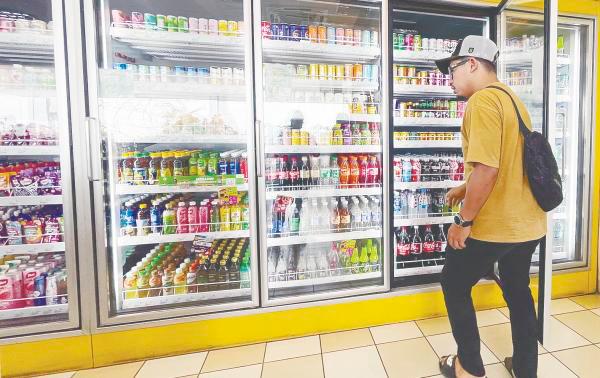PETALING JAYA: Excessive consumption of artificial sweeteners may increase the risk of stroke, heart disease and other health issues, so it is best to limit their consumption, said a public health expert who was commenting on several “zero sugar” labelled beverages that have flooded the market.
However, Universiti Kebangsaan Malaysia Public Health Medicine specialist Prof Dr Sharifa Ezat Wan Puteh said consuming such beverages is safe for diabetics as they do not lead to spikes in blood sugar levels.
In April, Deputy Health Minister Datuk Lukanisman Awang Sauni said nearly five million Malaysians are pre-diabetic.
He said diabetics do not show symptoms, so most are not aware they have the disease and may not undergo health checks.
“An awareness survey of 5,000 people found that 76% of respondents never got tested. We are trying to reduce the number of diabetics through screening tests as that is when we can advise and treat them so that they can make lifestyle changes.”
Sharifa Ezat said diabetics seeking a sugar alternative that will not raise their blood sugar levels often turn to sweeteners, but some may experience an aftertaste or find them less satisfying.
“Artificial sweeteners are considered safer and may be preferable to sugar if you are a diabetic as they do not affect blood sugar or insulin levels.”
However, she said those who suffer from phenylketonuria must avoid consuming drinks that contain artificial sweeteners such as aspartame.
Phenylketonuria is a rare genetic disease affecting children and its symptoms include mental retardation and physical disability.
“Those who suffer from inflammatory bowel disease should also avoid sugar substitutes as their symptoms could flare up.”
She said according to the US Food and Drug Administration, the acceptable daily intake of an artificial sweetener such as stevia is 4ml per kg of body weight.
“Someone who weighs 60kg could safely consume nine packets of the tabletop sweetener version of stevia per day. Stevia is a purified product that is around 300 times sweeter than table sugar, so one needs to use only a small quantity.”
She also said artificial sweeteners in “zero sugar” labelled drinks have synthetic compounds to replace sucrose or table sugar, and since there are little or no calories in them, the sweeteners do not raise blood sugar levels.
While zero sugar drinks are sweet due to the presence of artificial sweeteners, their calorie count is either negligible or zero.
Sharifa Ezat said adults should avoid giving artificial sweeteners to children under the age of two as they do not contain any nutrients.
She said the World Health Organisation has warned against using non-sugar substitutes as a means of achieving weight control or reducing the risk of contracting non-communicable diseases.
As for beverage companies producing zero sugar products, she said it is essential that the quantity of artificial sweeteners be clearly stated on the labels.
“It is essential to have artificial sweeteners quantified and well displayed on the nutrient label. Those with comorbidities are advised to consult their doctor or dietician on the best food choice as each individual is different in terms of body weight and other factors.”









